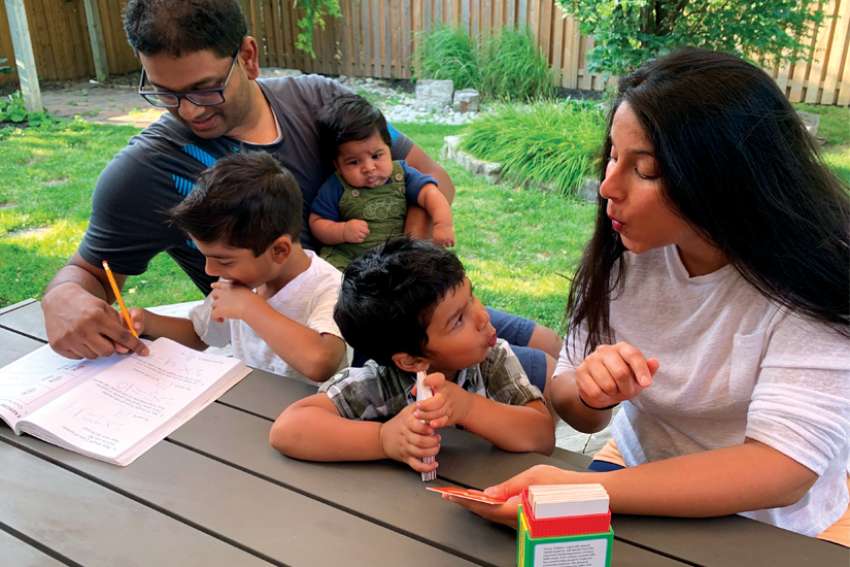Just like in-class students forced into distance learning by COVID-19, those who homeschooled their children were also deeply impacted by the coronavirus and the subsequent lockdown of huge swaths of society.
Vanessa Lobo, a Catholic homeschooling parent from Toronto, says that with limited access to community resources throughout the lockdown, like other families, they were widely relegated to online learning.
“Ordinarily I’d be taking them to museums, Lego Land and to parks to do nature studies,” said Lobo, who with her husband Ray has three boys, age six, three and three months. “We’re usually outside doing stuff all the time, but we really had to kind of turn inwardly and do everything at home without the help of libraries. In a lot of ways, it’s been a loss not being able to interact and be out in the world doing more of the practical hands-on stuff.”
It won’t be quite the same going forward as it was pre-pandemic. Ontario remains in stage three of re-opening, with numerous restrictions still in place. A complete re-opening of society appears to be well off in the distance.
It’s been an eventful year for the Lobos, who moved back to Toronto after five years in Dubai just before lockdown came into effect. Lobo, a nursing professor, and her husband, who works in engineering management, moved to the Middle East to cultivate their own family culture which they will continue to build as they homeschool.
“We’re being very intentional about connecting (our children) with people who I think they have interests that are kind of similar to,” said Lobo. “My oldest son is very interested in health and my sister is a doctor so she would talk to him about that. My other sister is a lawyer, my brother-in-law is a politician and a lot of our friends are teachers and musicians. Whatever (our children) are interested in, we connect them with those people not to shadow, but just to learn from in a very kind of natural way.”
The Lobos are not alone. According to the Ontario Federation of Teaching Parents (OFTP), between 20,000 and 40,000 children are homeschooled in Ontario. That’s between one and two per cent of the school-age population.
Carlo Ricci, liaison officer with OTFP, said contrary to what many believe, homeschooling does not mean children are not interacting with others. It encourages more cross-demographic interaction. When compared to regular school socialization, adherents say, this may be more favourable to children’s development.
Pauline Horton follows the Seton Home Study School, a Catholic program based out of Virginia, which she customizes to meet her family’s needs. As the province has entered into stage three of the re-opening, Horton has resumed regular contact with other family groups where they are able to collaborate for subjects such as music and science.
“We do a co-op with another family,” said Horton, a part-time professor at Niagara College with two children, age seven and four. “She’s a former music teacher and I’m a nerd, so I’m happy to create science experiments and things like that for the kids. We usually do that every other week.”
In Ontario there is no legal requirement to register with any government body in order to educate your children at home. Instead, parents are allowed to proceed with plans to provide for their education in whatever way they see fit.
Many parents haven’t allowed their children to return to class, worried about potential health hazards, Ricci says the OTFP has not seen an uptick in parents inquiring about joining the homeschooling community. Rather, these parents will continue with distance learning.
Like traditional schoolers, Ricci says homeschoolers will continue to proceed carefully as the province continues to adjust to a new normal.
“The precautions that we need to continue to take, I think is also going to continue to impact everybody in our community,” said Ricci. “The world has changed for all of us because of COVID-19.”


